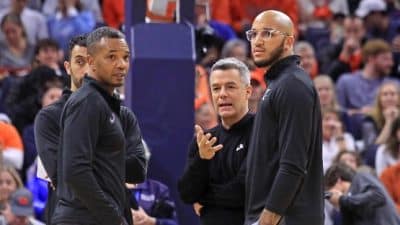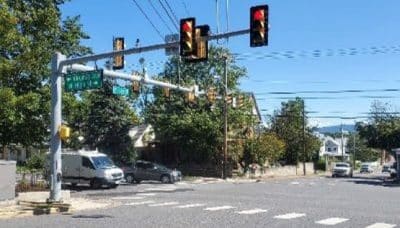
N.C. operated as a Rosenwald School from 1920 to 1950. Photo by Andrew Feiler.
In 1911, Booker T. Washington met Julius Rosenwald. The meeting between the leading Black educator in America and the president of the world’s largest department store would be the foundation of the Rosenwald schools.
The institutions transformed education for hundreds of thousands of Black children in the segregated South.
The Virginia Museum of History & Culture (VMHC) is preparing for the unveiling of a new exhibition that honors the legacy of this unique school program established to provide educational opportunities for African Americans during the Jim Crow era. “A Better Life for Their Children: Julius Rosenwald, Booker T. Washington, and the 4,978 Schools That Changed America” will be on display from Saturday, May 25, 2024 through Sunday, April 29, 2025.
The Rosenwald program was a rural school building program that helped educate Black children during a time of deep racial inequalities in public schools. Seed money was provided to help build the schools, while local governments and Black communities, despite facing significant hardships, came together to contribute money, land, building materials and labor to provide educational opportunities for their children.
Between 1912 and 1937, the Rosenwald initiative created 4,978 schools, as well as shop buildings and teacher housing, for a total of 5,357 structures in 15 Southern states. The schools often were named after local places and individuals, but collectively were referred to as “Rosenwald schools.” The schools served more than 663,000 students, which was one-third of Black children in the region, and employed thousands of teachers. In many locations, they were the only schools that Black children could attend. In Virginia, 382 Rosenwald buildings were constructed in 86 counties and four cities between 1917 and 1932.
When the Atlanta-based photographer Andrew Feiler learned of the Rosenwald story, he was inspired to embark on a three-year journey across the South to document the remaining school buildings and their alumni. His work formed the basis of an award-winning book and a traveling exhibition “A Better Life for Their Children: Julius Rosenwald, Booker T. Washington, and the 4,978 Schools That Changed America.”
The exhibition’s cornerstone are 26 photographs taken by Feiler, along with his stories of Rosenwald schools and their communities. The Virginia Museum of History & Culture has partnered with the Bray School Lab at William & Mary and various Rosenwald school community groups across the Commonwealth to curate a special section of the exhibition that showcases the history of Rosenwald schools in Virginia. The section will feature a variety of historical artifacts, images, oral histories with alumni and a recreation of a classroom.
“Rosenwald schools educated generations of Black Virginians and were a source of pride and hope for many communities,” Jamie Bosket, President and CEO at the Virginia Museum of History & Culture said in a statement. “This exhibition allows for us all to reflect on the lasting legacy of the Rosenwald schools program and be reminded of the power of education and its ability to break down barriers.”
More information about “A Better Life for Their Children: Julius Rosenwald, Booker T. Washington, and the 4,978 Schools That Changed America” is available online.
The Virginia Museum of History & Culture, 428 N Arthur Ashe Boulevard, Richmond, is owned and operated by the Virginia Historical Society, a private, non-profit organization established in 1831.










